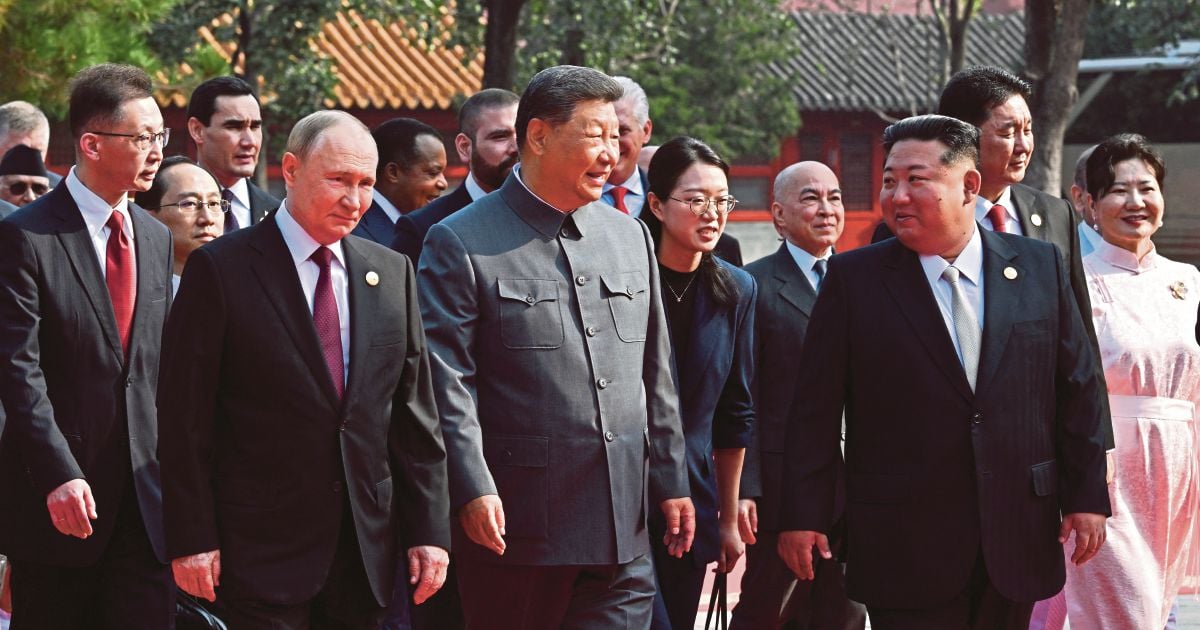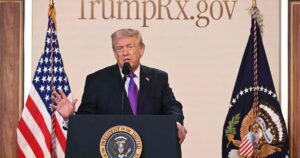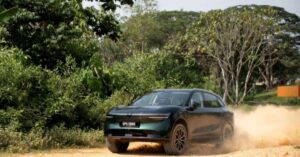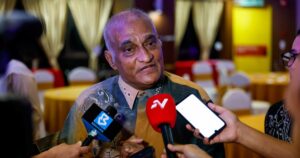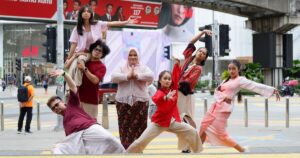BEYOND the bonhomie of Xi Jinping’s unprecedented meeting with Vladimir Putin and Kim Jong Un last week, there are limits.
While the gathering at China‘s Sept 3 military parade sparked concern among some world leaders that they were bearing witness to an important geopolitical shift, sources said Beijing, Moscow and Pyongyang are far from forming a cohesive bloc.
They pointed to the lack of an official trilateral summit during the event and uncertainty over marquee economic deals like a pipeline project.
Vague pledges of closer cooperation may be aimed more at gaining leverage in mooted talks with United States President Donald Trump, they added.
“I don’t see this as a declaration of a new order,” said Victor Cha, head of the geopolitics and foreign policy department at the Centre for Strategic and International Studies, a Washington DC-based think tank.
Even so, “optics do matter”, said a long-serving US diplomat in Asia, requesting anonymity due to the sensitivity of the matter.
“While China, Russia and the DPRK will no doubt continue to have differences on specific policy areas, all three have made clear they are united in their antipathy towards the US-led international system,” the diplomat said, using the acronym for North Korea’s official name.
Japan’s outgoing Prime Minister Shigeru Ishiba used his resignation speech last Sunday to note that the image of its nuclear-armed neighbours standing side by side underscored a severe security risk.
The EU’s foreign policy chief Kaja Kallas earlier called the gathering a burgeoning “autocratic alliance”.
Trump said in a post on Truth Social that Xi, Putin and Kim were conspiring against him, a comment the Kremlin suggested was ironic.
A US official said Trump is “disappointed to see some countries siding with China” and that “America is going to re-evaluate” the situation, but gave no details.
The parade capped a diplomatic tour de force for Xi.
It also helped Putin push back against Western narratives about his international isolation over the Ukraine war, and gave Kim implicit support for his banned nuclear weapons, analysts said.
But while Xi hosted one-on-one talks with both Putin and Kim, the trio did not sit down together for a formal summit.
“China did not seem to be signalling that formal trilateral cooperation is starting,” said Jenny Town, director of 38 North, a Washington-based project that monitors North Korea.
That suggests a more direct show of force, such as three-way joint military drills, remains a distant prospect, analysts said.
It also stands in contrast to rival superpower, the United States, which relies on security alliances like the North Atlantic Treaty Organisation and multilateral summits with Japan and South Korea, and the Quad group with Japan, Australia and India, to project its global power.
On the economic front, there appeared to be more tangible results, headlined by a “binding memorandum” between Russia and China on a vast gas pipeline announced during the summit.
However, despite its promotion by Putin, China did not mention the pipeline in any of its official readouts and deflected questions on the subject at a regular press briefing.
Since the summit, there have been signs that China is moving to open its domestic bond markets to Russian companies shut out from Western capital.
The ensemble of senior Chinese economic officials that participated in Xi’s first in-person meeting with Kim in six years suggests trade was also likely on the agenda, said one senior foreign diplomat in Beijing.
Beijing’s official readout of those talks also made no mention of “denuclearisation” for the first time in years, in what some analysts said was a major concession to Kim.
In response, South Korea‘s Foreign Ministry urged Beijing to play a constructive role in bringing Pyongyang back to dialogue over its nuclear programme.
Trump is expected to make a trip to the region for the Asia-Pacific Economic Cooperation summit in South Korea in late October, setting up possible talks with Xi amid fraught trade negotiations between the world’s top two economies.
The writers are from Reuters
© New Straits Times Press (M) Bhd
